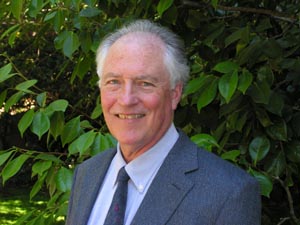Under the direction of professor Edmund Burke III, director of the UC Santa Cruz Center for World History, seven UCSC current and past graduate students in history presented papers at the 16th annual conference of the World History Association (WHA) in Milwaukee.
The WHA is the foremost organization in the country for the promotion of world history through the encouragement of teaching, research, and publication. Since it was founded in 1982, the members of the WHA have been instrumental in establishing standards for teaching world history at the national and state levels, as well as designing the AP World History course.
The UCSC students presented two panels on "Social Biography as World History," an approach to world history that links the lives of ordinary individuals with the broader contexts within which they emerged. The panels were based on a project initiated in Burke's graduate seminar, "Patterns of World History."
"Social biography is an attempt to understand the trajectories of ordinary people's lives through the systematic application of the research strategies of social history and the encompassing vision of world history," said Burke. "By reading the facts of these lives through the lens of world history, social biographies cast new light on the standard world historical narrative, with its emphasis on large-scale change."
Burke added that models of social biographies for classroom and university teachers are now available on the UCSC Center for World History web site in a new, updated "Teaching Resources" section click here.
The web site also includes a new globalized model curriculum for college-level survey courses in U.S. history that UCSC graduate students introduced at last year's WHA conference in Los Angeles. That project was the result of the collaboration of more than a dozen UCSC graduate students of world history over an 18-month period. It features a syllabus for each of the two parts of the U.S. history lower-division survey course, along with lecture titles and assigned readings. There is also an instructor's syllabus that outlines each lecture, as well as a bibliography to guide the instructor's preparation.
Burke also noted that a third project-"Commodities as an Approach to World History"--has been added to the Teaching Resources section of the site. It features models of student research that trace the role of commodities such as coffee against the backdrop of a changing world.
UCSC graduate student presenters at the WHA conference included Urmi Engineer, Anders Otterness, Eliza Martin, Kevin McDonald, Maia Ramnath, and Martin Renner, plus Alexandra Haugh and Rick Warner, who previously received Ph.D.s in history from the campus.
For more information, contact Edmund Burke III, director of the UCSC Center for World History, at (831) 459-2287.



